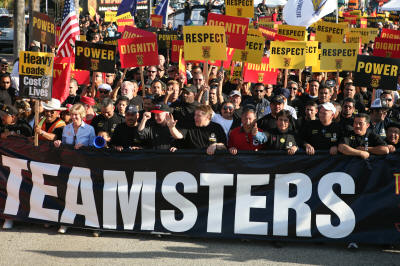South Africa: At the Precipice of Bedlam
In what is the most heightened and well-publicized labor
tension of recent months, South Africa’s mining sector is undergoing some of
the worst strikes in recent memory. Somewhat reminiscent of the West Virginia
Coal Wars which occurred between 1921 and 1922, South Africa is undergoing a
rapid and violent transition to organized labor, almost certainly a byproduct
of the immense success the mining industry has had recently. While it is
unclear when the turmoil will be resolved, South Africa remains a very clear
and very present example of the change in developing nations that will likely
persist for decades to come – workers around the globe are refusing to continue
accepting the meager wages and abysmal lives they work so hard for. As
multi-national corporations continue to enjoy record profits, workers will
become more and more cognizant of the disparity between themselves and their
employers, and more often than not, the result will be widespread violence.
The problems in South Africa stretch back to August, when
police made worldwide news by firing upon striking workers at a mine, killing
34 of them. The result was outrage not only nationally, but throughout much of
the world, further exacerbated days later with news that the police would not
have charges pressed against them. Since then, workers have continued to
strike, although it has been unsuccessful in achieving much as of yet. The New
York Times estimates that approximately 75,000 miners in South Africa are
currently on strike, which is just about one quarter of the total mining
population.
Although still not willing to budge on the bargaining table,
Anglo American Platinum, the enormous platinum mine in the spotlight because of
the strikes, has admitted that it is losing profits rapidly. In an attempt to
quell this, they laid off 12,000 striking miners last Friday as a warning to
the remaining miners on strike. The stakes are high, and desperation is
beginning to show. Moody’s recently downgraded South African bonds, signaling
that the strikes are hurting not just the mining companies, but the South
African economy as a whole. Realistic compromises need to be discussed and
resolutions made before the situation continues to spiral out of control.
In a country still smarting from the Apartheid era only a few
decades ago, the strikes highlight racial tensions, not just labor ones. Having
the company “Anglo American Platinum” laying off and repressing predominantly
black workers signifies that race issues are still highly prevalent in the
country; this will undoubtedly prolong the strikes and delay complicate
negotiations to be had. Surprisingly, the South African government has yet to
apply pressure to Anglo American Platinum, although I am sure that will not
last much longer. The mining industry needs to restructure itself and
re-evaluate its employer-employee relationships in order to better accommodate
at least some of the strikers demands, or else the South African economy will
surely crash and burn and the country will be thrust back into a position of instability
that many of their neighbors currently suffer from.
Conclusion
Tensions between employers and workers will never go away.
They serve as an indicator that capitalism is functioning, albeit perhaps not
the way it should be, and striking a balance between the needs of workers and
the wants of owners will remain about as feasibly struck as a college senior’s
balance between work and play (excluding, of course, my co-author Zach). However,
there are stages of labor tensions, and right now much of the world is
struggling to battle through the tensions that America, the U.K., and the rest
of the developed world struggled with over a century ago. In a highly
globalized world, the developed world must empathize, and support these
developing countries. While union disputes continue to plague the United
States, the average quality of workers in this country is very good, something
that was certainly not achieved overnight. Recognizing this and exerting our
economic might by imposing certain trade regulations, and reducing or
increasing aid is paramount in helping improve worker’s rights across the globe
and decreasing production instability and potentially enormous trade quagmires.
Many may disagree with me on this but ultimately organized labor is a good
thing, for employers, employees, consumers, and everyone else involved in the
production and consumption of goods and materials. What we need to focus on
right now is helping our friends in the developing world see that as well.
A recent strike in the United States


No comments:
Post a Comment